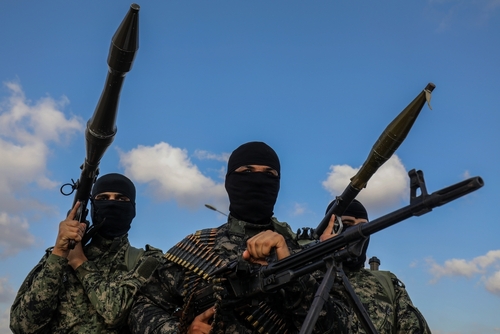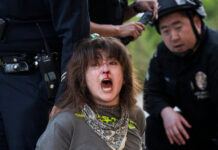
In a world where the veneer of civilization often masks the darkest of deeds, recent revelations have brought to light a series of atrocities that defy comprehension. Reports have surfaced detailing the brutal acts committed by Hamas terrorists against innocent civilians, painting a picture so vile it surpasses the most gruesome scenes from any horror film.
The international community stands aghast as evidence mounts of unspeakable crimes. Witnesses recount the beheading of infants, the violent rape of victims—including post-mortem violations—and other acts of sadistic torture. These are not isolated incidents but part of a systematic campaign of terror that has left deep scars on the collective conscience of humanity.
Come and hear about the war crimes committed by Hamas. This is an important post, read it all.
I mean, beyond the "usual" things they do, like killing Israeli civilians, LGBTQ+ individuals, and opposition figures in Gaza. This war crime is the relentless rocket fire on Israeli… pic.twitter.com/2MnYF5zBFB
— Ori Miller🇮🇱 (@orielishamiller) November 21, 2023
A non-governmental organization has taken on the monumental task of documenting these war crimes. Their efforts are reminiscent of the meticulous collection of evidence that led to the historic Nuremberg trials. It is a painstaking process, but one that is essential for ensuring that justice is served and that such horrors are never repeated.
The Rome Statute of the International Criminal Court defines the litany of offenses that constitute crimes against humanity. Among them are murder, torture, rape, and persecution against identifiable groups. The actions of Hamas fit squarely within these parameters, demanding a robust legal response.
The far left makes a big mistake to deny or downplay Hamas's atrocities. Israel's bombardment and besiegement of Palestinian civilians in Gaza are awful on their own terms. Whitewashing Hamas's war crimes is wrong, unnecessary, and unhelpful. https://t.co/YW686RP7CZ
— Kenneth Roth (@KenRoth) November 27, 2023
A team of dedicated individuals, including prominent intellectuals and legal experts, has rallied to the cause. They are calling upon international bodies such as the Human Rights Council and the United Nations to pass resolutions acknowledging the gravity of Hamas’ war crimes. This is a crucial step in the long road to accountability.
The evidence being compiled is harrowing. Captured terrorists have provided testimony, eyewitnesses have come forward, and video footage—some recorded by the perpetrators themselves—has been secured. These materials form the backbone of what could lead to a Nuremberg-style prosecution, where the architects of terror are held to account.
One of the most chilling aspects of this campaign of terror is the use of rape as a weapon of war. Testimonies reveal that women were subjected to barbaric treatment, mutilated, and raped with such ferocity that it resulted in fatal injuries. These acts were not committed in the shadows but were part of a deliberate strategy to instill fear and exert control.
The international community must now face a critical test of its resolve. Will it stand by as mere spectators to these atrocities, or will it rise to the challenge of delivering justice? The path ahead is fraught with diplomatic and legal obstacles, but the moral imperative to act is clear.
As the world grapples with the reality of these crimes, there is a growing consensus that silence is complicity. It is time to shine a light on the darkness of Hamas’ actions and ensure that those responsible are brought before the bar of justice. Only then can the victims and their families begin the long process of healing, and only then can we hope to deter such brutality in the future.












